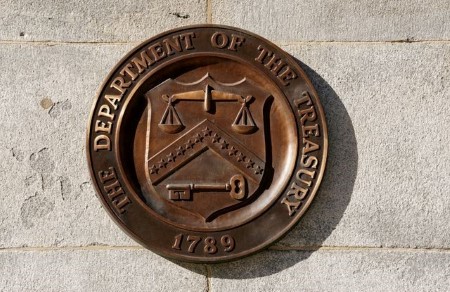




Quarterly Economic Growth Release: More BSP cuts to come
 DOWNLOAD
DOWNLOAD

Monthly Economic Update: Fed catches up
 DOWNLOAD
DOWNLOAD

Inflation Update: Steady and mellow
 DOWNLOAD
DOWNLOAD


US yields fall after Fed’s Bowman says interest rate cuts may come sooner

NEW YORK – Yields on US Treasuries fell on Monday as Federal Reserve vice-chair Michelle Bowman unexpectedly signaled the first interest rate cut this year could come as soon as July.
Markets also saw Iran’s response on Monday to US attacks on its nuclear sites over the weekend as a sign that further escalation of the conflict is unlikely.
Bowman, recently tapped by US President Donald Trump to be the central bank’s top bank overseer, said she is growing more concerned about risks to the job market than the potential inflationary effects of tariffs.
The two-year US Treasury yield, which typically moves in step with interest rate expectations, fell 5.7 basis points to 3.851%.
But investors still see little chance of a rate cut in the July meeting, and a 77% chance of rates being steady, according to CME’s FedWatch tool. That percentage barely changed following Bowman’s comments.
“I was surprised by her comments, a rate cut in July is not the consensus in the market,” said Will Compernolle, macro strategist at FHN Financial in Chicago.
Compernolle said even as Bowman’s comments reassured the market that rate cuts will happen this year, investors note that other Fed officials consider that they need more time to assess the effect of tariffs on inflation.
Odds of lower rates from September rose above 80%, while bets on lower rates from October climbed above 92%.
The yield on the benchmark US 10-year Treasury note fell 3.5 basis points to 4.34%, after retreating more than 6 basis points during the day.
Markets took a positive view of events in the Middle East, with oil prices falling 6% on Monday after Iran sent missiles against a US military base in Qatar. The missiles were intercepted, and there were no casualties, a result seen by investors as a sign that the conflict will not escalate.
“If oil prices do not rise, that’s good news to inflationary pressures,” said Vail Hartman, US rates strategist at BMO Capital Markets in New York.
Investors’ main worry was the potential closure of the Strait of Hormuz, Hartman said, which could have large repercussions on global energy trade.
On Monday, there were no clear indications that this would happen.
(Reporting by Tatiana Bautzer, editing by Deepa Babington, Nick Zieminski, and Nia Williams)
This article originally appeared on reuters.com





 By Reuters
By Reuters